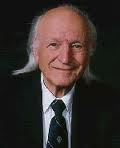Is Unity a Church?
by James Dillet Freeman
 People often ask, “Is Unity a church?”
People often ask, “Is Unity a church?”
I usually answer, “What is a church?”
What do you think a church is? Your idea of what a church is may determine what you think Unity is.
We get our English word church from a Greek word, kyriakon. If you mean by church what the Greek word meant, then Unity is a church. For it meant “the center or seat of the Lord’s power.” And Unity certainly is this.
The word kyriakon, from which church is derived, does not appear in the Bible.
The word that is translated as church in the New Testament is another Greek word, ecclesia. It merely meant “the called-out ones,” and Jesus used it to refer to those who were following in the way and doing the work of Christ, carrying His message of Truth to the world. This certainly, too, Unity is doing.
In the first days of Christianity, church could not possibly have referred to a place, because there were no places in which Christians were established. The Christian church consisted simply of a group of dedicated men who wandered about, teaching the truth as they had found it. After a while they established places and built buildings they usually called churches, where they could get together with one another, meet, discuss, and practice their religion. This is a natural thing for people to do.
In the same way, people in Unity have gotten together and set up places they call centers, churches, temples, societies, and the like, where they can meet, exchange their ideas of truth, and help one another to develop their divine potential.
But this has not been a principal way that Unity has found expression. Unity is as much an attitude as an idea and it is a religious movement that is not limited to any particular place or denomination.
Perhaps Unity is a new kind of church.
All churches, all religious movements, are based on beliefs. Most Christian churches share most of their beliefs. They do not differ because they have different beliefs, but because they emphasize different aspects of their beliefs.
Thus, Unity emphasizes the belief that God is good, God is love. Therefore, His will for you is good—happiness, health, supply, whatever contributes to your growth and unfoldment.
Also, Unity emphasizes God’s impersonal aspect, God as principle.
Above all, Unity emphasizes the belief that God is within you. You have a divine potential.
Unity does not demand that you subscribe to a creed.
Unity does not ask whether you are a member of some particular religious organization.
Unity does not require you to perform certain rites and practices.
In all these matters, it leaves you free.
This is one of the great characteristics of Unity. It leaves people free to practice their religion at whatever level they have come up to, and to do whatever they feel is right and necessary to establish their own right relationship with God.
The church that is Unity crosses all religious bodies, all denominations. It does this not as a separating, divisive force, but as a harmonizing, strengthening spirit. The work of Unity—its religious activity as a church—is done with no regard to sect or denomination.
The ministry of Unity is one of prayer. Its prayer work is centered in Silent Unity. Here a vigil of prayer is maintained night and day, seven days a week. It has been going on for more than ninety years. To it, asking for help in prayer, millions of people have turned and are turning. Last year, from all over the world, more than 600,000 persons called on the telephone. More than two million persons wrote. With all these persons, Silent Unity prayed. It wrote letters, it sent literature.
It never asked any of these people, “Are you a student of Unity?” It never asked if they were Lutherans or Presbyterians, Catholics or Jews, Buddhists or Moslems.
It did not try to induce them to change their religious affiliation or to enter one if they had none. It prayed with them.
Then, too, Unity is the church of the written word. Today, the written word has come to include cassettes and radio and television programs. But throughout its existence, Unity has conducted its ministry mainly by means of the printed word—magazines, books, pamphlets, cards, and other kinds of printed materials. It is impossible to estimate how many millions of persons have read Unity literature. It would be many, many millions.
Again, as with its prayer ministry, Unity has not tried to make these people members of a particular denomination.
Unity does not say, “Here is a creed, you must subscribe to it.” Instead it says, “Here are ideas that we feel are true about God, about yourself, about life. If you feel that any of these ideas are acceptable and useful, then use them.”
We do not offer teachings as final truths that you must accept or be lost. We offer teachings as a set of directions that will help you to find your way.
Unity is the church spiritual, the church of the individual, growing, seeking, unfolding, becoming what he is meant to be.
It was not founded to separate people into another body, bounded by religious laws, doctrines, practices, and rituals. It was founded on the notion that God is within you, and therefore your purpose in life is to express your divine potential. Everything Unity has done as a church, it has done to help you achieve this purpose. It accepts you where you are and for what you are, and it helps you become the child of God you were born to be.
To help you to do this, Unity will pray with you, and it will teach you how to pray yourself, teach you techniques of prayer and meditation, techniques of seeking and finding God within you. Through its magazines and books and other literature, through its cassettes and radio and television programs, it will give you words to inspire you and words to instruct you as you meet your problems and come up through them to live effectively and well.
Because Unity as a church believes in its own divine potential, it has trusted God to supply support for its work. It has never charged for its prayers, and it has prepared its printed materials as inexpensively as it could, in the faith that those who are helped and want to see its message brought before others will provide financial support.
Many persons freely have sent love offerings to support the work that Unity is doing, because they believe Unity does help people live more effectively, in a way to bring forth a better world for all.
Unity is a church, but a new and different kind of church. It has teachings, but not a creed.
It is more than a week-day application of spiritual principles to daily problems than it is a Sunday service.
It has students, but demands no affiliation. It is more a movement than a body of believers. Those who study its teachings do not even have a name they can give when people ask, “What are you?” They are not Unity-anything. They just have to say they are students of Unity or metaphysics or something of that sort.
Perhaps the essence of Unity’s meaning as a new and different kind of church is in its name.
UNITY.
This name leaves no one out.
********
James Dillet Freeman (1912 – April 9, 2003), a poet and Unity minister, was the Unity Movement’s poet laureate. He was sometimes referred to as the “poet laureate to the moon” because his poems were twice taken to the moon. His 1941 “Prayer for Protection” was taken aboard Apollo 11 in July 1969 by Lunar Module pilot Buzz Aldrin, and a microfilm of Freeman’s 1947 “I Am There” was left on the moon by James B. Irwin on Apollo 15. Though the essay above was written by Freeman many years ago, it remains a wonderful and relevant description of what we call Unity.




 YouTube
YouTube